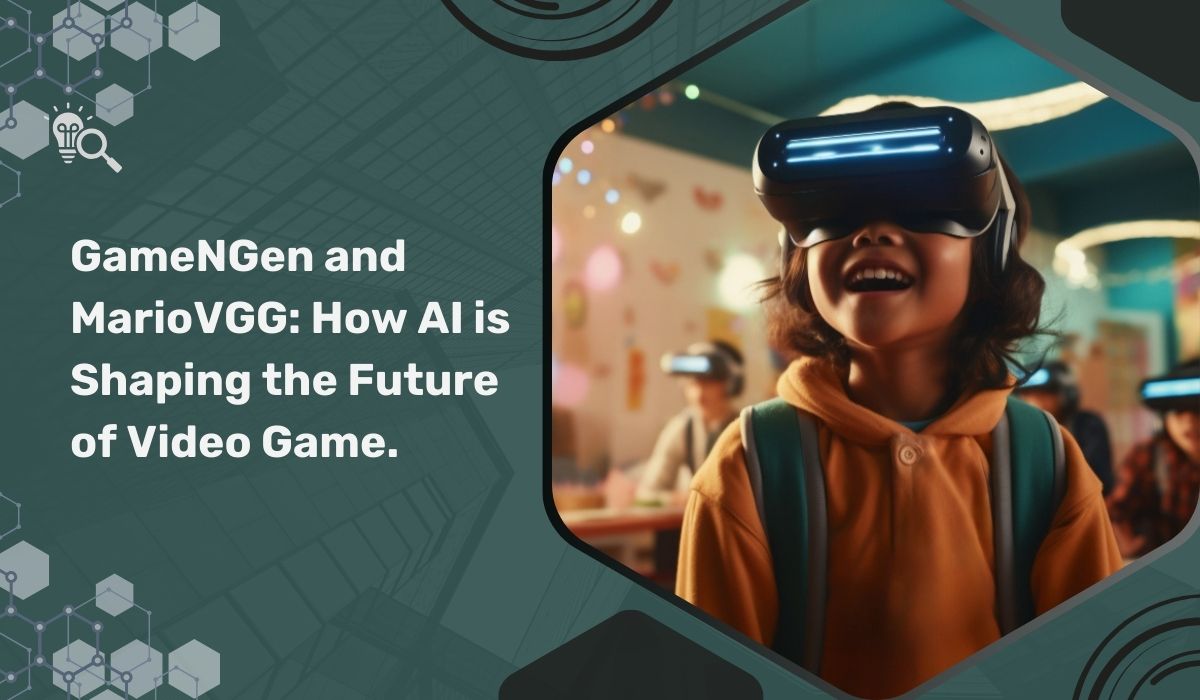
Artificial intelligence technologies are making a significant impact on the video game industry, with models like Google’s GameNGen and Virtuals Protocol’s MarioVGG leading the charge in AI-driven game creation. These innovations are pushing the boundaries of game development, hinting at a future where AI could autonomously generate entire games based on simple user commands. However, despite the breakthroughs, both models face technical hurdles that must be overcome before fully transforming the industry.
One of the most notable advances comes from Google’s GameNGen, an AI that has successfully applied generalized image diffusion techniques to create a playable version of the iconic first-person shooter *Doom*. By reconstructing game environments and mechanics using image-based methods, GameNGen showcases the potential of AI to generate complex gaming scenarios from scratch. Its success has sparked interest in further exploring AI's role in creating video games, possibly expanding beyond individual titles into broader applications for the industry.
Building upon GameNGen's achievements, Virtuals Protocol introduced MarioVGG, an AI model designed to generate video footage from the classic *Super Mario Bros.* game. Trained on more than 737,000 frames of gameplay, MarioVGG aims to simulate Mario’s movements based on basic user inputs like “run right” and “jump.” Despite this exciting leap forward, MarioVGG remains in its infancy, grappling with issues such as slow processing speeds and visual inconsistencies, which limit its practical application.
MarioVGG can infer basic game physics and predict obstacle patterns from visual data, it struggles with real-time performance. Currently, the model generates only six frames in six seconds, making it unfit for smooth gameplay. Additionally, misinterpretations of user commands often result in glitches or unexpected visual anomalies, highlighting the need for further refinement.
Despite these challenges, researchers remain optimistic that with extended training and a more diverse dataset, MarioVGG could become a valuable tool for game development. If its real-time processing capabilities can be enhanced and technical glitches reduced, MarioVGG may one day allow for entire gameplay sequences to be generated autonomously, offering a novel approach to video game design.
The emergence of AI-generated content is creating waves in the gaming community. Proponents argue that AI could reduce the time and cost of game development, democratizing the process and making it more accessible to smaller studios and independent developers. By automating key elements of game creation, AI technologies like GameNGen and MarioVGG could revolutionize the industry, allowing developers to focus on creativity rather than technical coding.
The road to widespread adoption of AI-generated games is not without obstacles. Both models are still experimental, and their real-time performance lags behind traditional game engines. Additionally, ethical and environmental concerns loom over the increasing use of AI, with questions arising about resource consumption and the potential diversion of focus from more critical applications in healthcare and energy efficiency.
Discussions across industry forums such as Reddit and Quora reflect a mixed sentiment. Enthusiasts are excited about the possibilities these AI-driven models present, particularly the recreation of classic games like *Doom* and *Super Mario Bros.*, which demonstrate the potential of neural networks and image diffusion in gaming. However, experts remain cautious, pointing to the slow processing speeds and frequent glitches that indicate these technologies are far from replacing traditional game engines.
Looking forward, the potential for AI to automate game development remains immense. As models like GameNGen and MarioVGG evolve, they could eventually eliminate the complexities of traditional coding, allowing developers to create immersive worlds from simple inputs. This shift could lead to a future where AI-generated games become the norm, fundamentally changing the game development process.
While we are still in the early stages of this revolution, the work being done with GameNGen and MarioVGG hints at a future where AI could become a central tool in game creation. Overcoming the current technical limitations will be key to unlocking this potential and ensuring that AI-generated games can rival the quality and creativity of traditionally designed ones.As AI technology continues to evolve, the gaming industry stands on the brink of a transformation that could change not only how games are made, but also who has the power to make them.